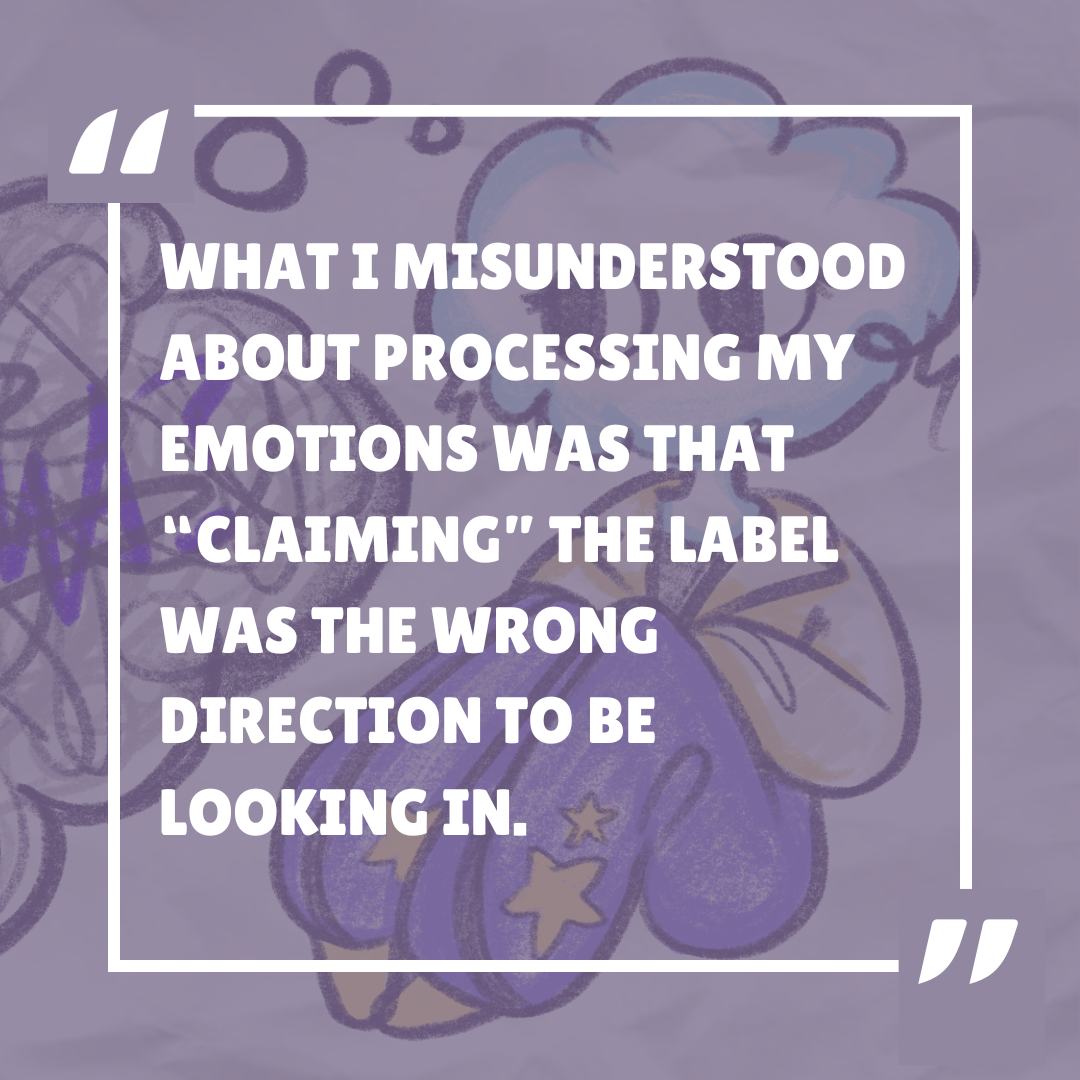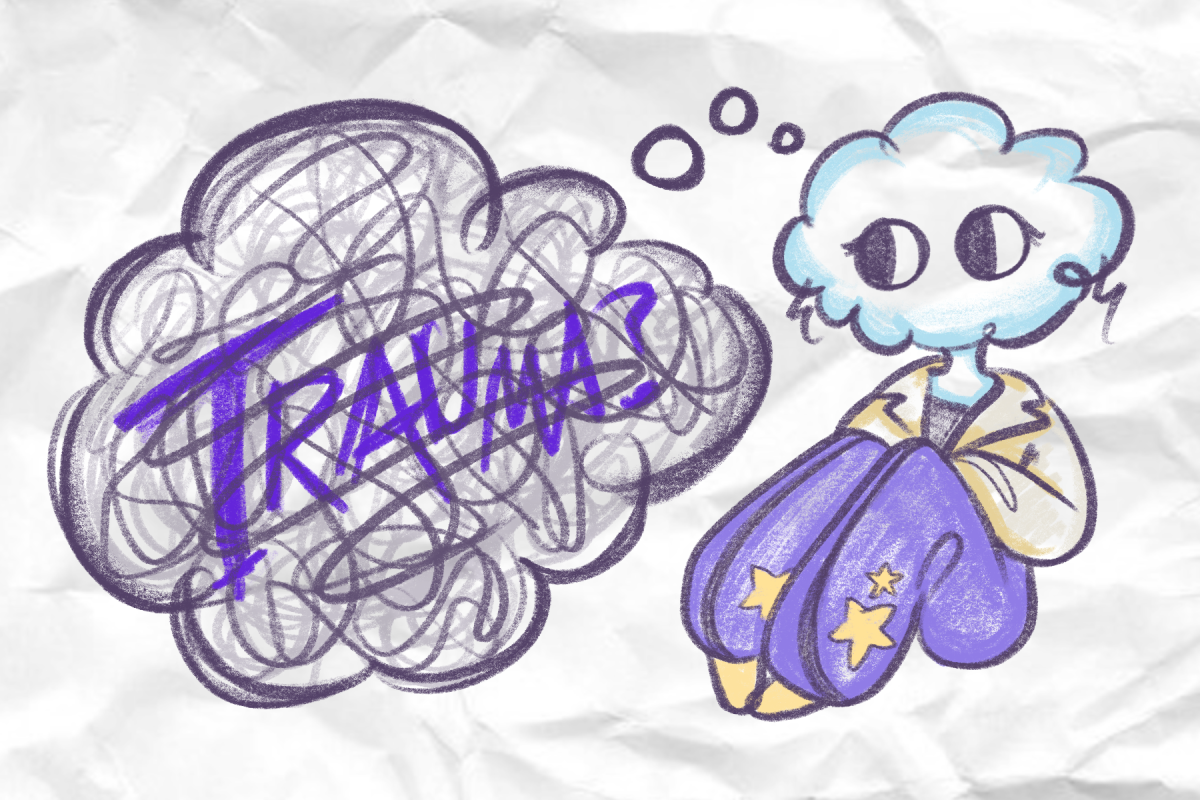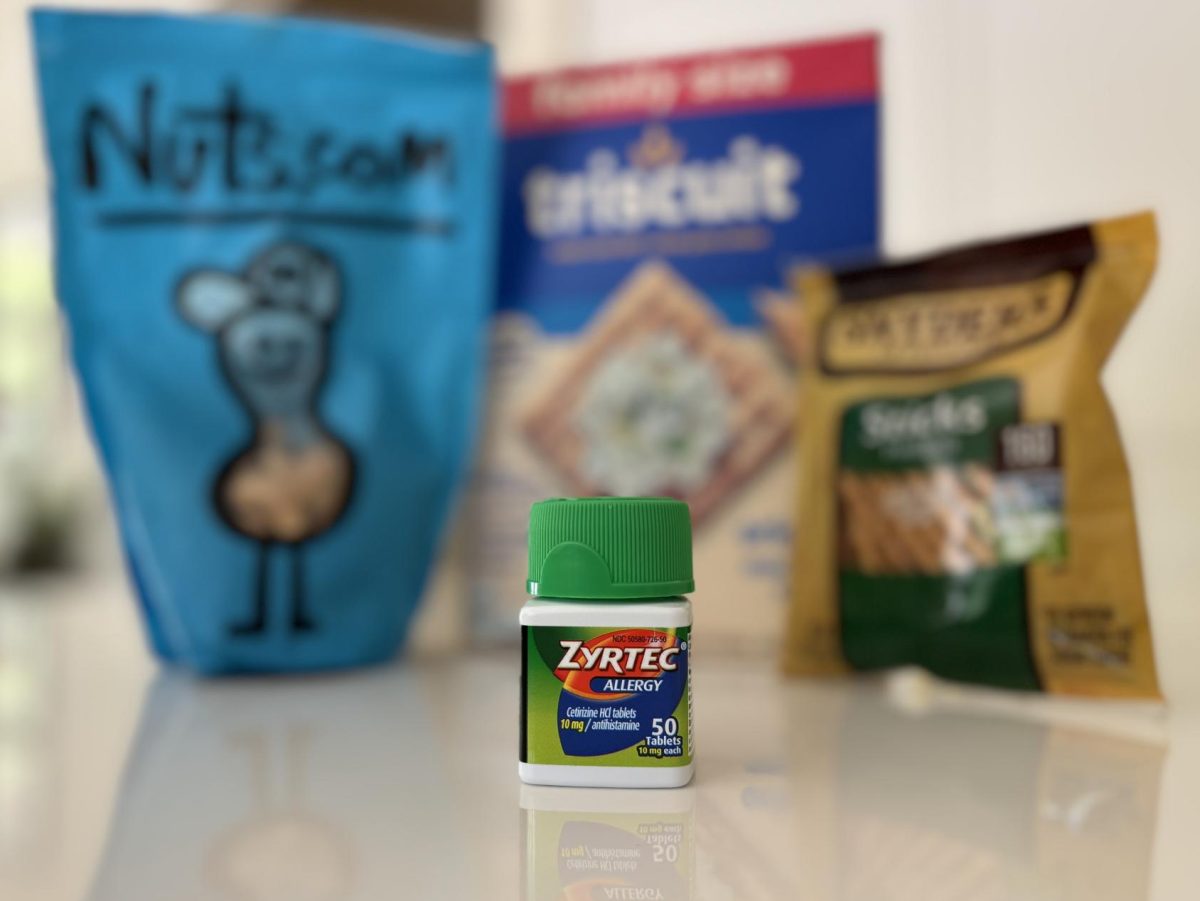I’ve seen a lot of original speeches in my time competing in speech tournaments, but there’s one piece in particular that has stuck with me since freshman year. The speaker was attempting to argue that “little-t trauma,” such as being yelled at by a teacher, should be treated with the same seriousness as “big-T trauma,” like sexual assault. The argument was strange, sloppy and seriously diminished others’ experiences, and to be honest, I haven’t stopped thinking about it since.
The attention economy attached to speech has made for some deeply contrarian arguments, and this is definitely one of them. But one of the biggest pitfalls I’ve pinpointed with the piece — ironically an argument the speaker was trying to make — is the use of the term “trauma.”
Trauma, like every other part of a person’s lived experience, varies so intensely that it’s unproductive and often damaging to compare it. What a “deeply distressing event” means to each person will depend on how they process their life events — this also affects the way they discuss and deal with that trauma. Some people are very open and joke about it, while others experience intense triggers and require more sensitivity. This diversity seems banal to acknowledge, but the range means that any definition for trauma will always be more restrictive than it is descriptive.
To make matters worse, our online discourse surrounding trauma — or, again, our vague and narrow definition of it — is predominantly negative rather than constructive. Terms like “trauma-dumping” or “trauma-fishing,” though targeting legitimate phenomena, connote the term as burdensome and even deceptive. Through these discussions that center trauma as an inconvenient monolith, we stop acknowledging that trauma is a dynamic experience.
For a while, I struggled with fitting that rigid definition of trauma into my life. I wasn’t sure if I checked all the boxes: the situation wasn’t imposed, surprising or immediately shocking, and I only started having second thoughts afterwards — so does that even really count if I wasn’t instantly clear on my thoughts in the moment?
This affected the way I talked about my experiences, even with my most trusted friends. My explanations would be full of caveats and downplaying — phrases like “I don’t know how big of a deal it is” — because I never really felt like I could lay claim to “having trauma.” And if I didn’t, what was my excuse for thinking about my experience so often?

What I misunderstood about processing my emotions was that “claiming” the label was the wrong direction to be looking. Maybe my body couldn’t magically tell me if my experience could be classified as trauma, but it could tell me that there was something worth looking into. I was inadvertently invalidating what I already knew in favor of chasing validation from a dictionary.
Similarly, we need to stop assigning the term so much authority by integrating ways to process experiences that don’t start with “Is this trauma?” as the leading question. Psychologist Ruth Gatt recommends starting by identifying what about the situation hurts. How are you feeling about it? Is this specific incident related to an overarching struggle you’re going through? They’re big questions, and it’s OK if they can’t be answered immediately, but it could be helpful to keep them in mind as a starting point if you ever feel like sitting down to think about it.
Personally, I like using the “How are you doing?” tool by The Pudding that takes a more holistic approach to an emotional check-in. In addition to standard questions about how you feel, it also asks how those feelings affect your physical sensations and suggests some steps to respond to them. Starting from these concrete points can help us move away from the abstraction of terminology.
At the same time, it’s important to consider if you need external help. Not everything can be solved with online tools and internal processing. If you think there’s a chance there could be an ongoing condition you can’t handle yourself, seek a medical professional or trusted adult instead of going about it alone. We can’t solve everything ourselves, and if treatment is necessary, it’s necessary.
But at the same time, collecting things — be it people, locations or actions — that help you feel better or calmer won’t hurt either. Being kind to yourself is difficult, especially for headstrong MVHS students to whom it can often feel indulgent rather than constructive. But allowing yourself to take pride in your progress will center you in the process of healing, not instant achievements.
The label will never be what creates you. Maybe I wrote this all as an affirmation after lingering on that one speech for so long, but I believe this — trauma or not, we continue living with it.










